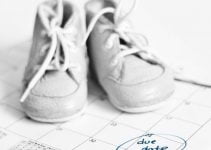If you are looking for information on the morning after pill, then you have come to the right place. This article will help you to understand what it is, how it works and when it can be taken.
Morning-After Pill – What It Is, How It Works and When to Take It
 The morning after pill is a form of emergency contraception or birth control. It is intended to be used only as your back-up contraception and not as your primary birth control method.
The morning after pill is a form of emergency contraception or birth control. It is intended to be used only as your back-up contraception and not as your primary birth control method.
Morning-after pills consist of Plan B One-Step (levonorgestrel), AfterPill (levonorgestrel) or Ella (ulipristal acetate).
You can buy Plan B One-Step and AfterPill over the counter without a prescription (or online: Plan B; AfterPill), but you’ll need a prescription from your health care provider or doctor to get ulipristal.
How Does It Work?
You would need a morning after pill if you want to prevent pregnancy after having sex without protection or after your birth control method fails. It can work for you in one (1) of three (3) ways.
This includes delaying ovulation or changing your normal menstrual cycle, stopping ovulation or the release of the egg from the ovary, or disrupting the uterus lining (endometrium) to prevent implantation.
It is important for you to know that egg fertilization occurs inside the fallopian tube and will mark the start of pregnancy and the start of a new life. The new baby would then travel down the fallopian tube into the womb or uterus for implantation.
The trek from the fallopian tube into the womb will take 5 to 7 days and pregnancy cannot be detected readily at this time. This means the uterus lining can be altered if emergency contraception is taken after fertilization occurs.
The uterus lining can be altered to cause your body to discard the living embryo, which is referred to as a chemical abortion.
Morning-after pills cannot end an implanted pregnancy. Depending on the stage of your menstrual cycle, the morning-after pill can prevent or delay ovulation, prevent a fertilized egg from uterus implantation or block fertilization.
Morning-after pills could help to prevent pregnancy or conception if you have sex without protection, whether you miss a birth control pill, didn’t use birth control, your birth control method fail or you were assaulted sexually.
When to Take It
The morning-after pill can be taken after you have unprotected sex to stop you from getting pregnant and it is also quite useful if your condom broke during intercourse. Many people know of the morning-after pill, but they often get confused because the term is misleading.
The fact is that you do not have to take it the morning after you have sexual intercourse, but it should be ingested as early as possible. It has a higher chance of working if it’s taken quickly.
One type can be used up to three (3) days after you have sex if necessary, while another can be used up to five (5) days. The efficacy of levonorgestrel is about 95% if taken within 24 hours after unprotected sex.[1]
Risks
The emergency contraception or morning after pill is an effective method that you can use to prevent pregnancy after having sex without protection, but it is not quite as effective as other contraception methods and is not recommended for regular use. Aside from that, the morning-after pill could fail even if used correctly use and it will not protect you against Sexually Transmitted Infections (STIs).
These pills are not appropriate for every woman. You should not take it if you are allergic to any of its components, already pregnant, or using certain medications which might lower its effectiveness.
Besides that, there is some evidence to show that the morning after pill might not be so effective in preventing pregnancy if you are obese or overweight.[2]
You should ensure that you are not using ulipristal if you are pregnant. There are known effects that ulipristal will have on a developing baby.
If you take levonorgestrel while you are already pregnant, the treatment will not be effective and it will not harm the growing baby. It is not recommended to use ulipristal if you are breast-feeding.
The morning-after pill side effects typically only last for a few days and might include dizziness, vomiting or nausea, headache, fatigue, lower abdominal cramps or pain, heavier menstrual bleeding or bleeding in between periods, and breast tenderness.
Who Should Take It
Many women are now using the morning-after pill widely after having unprotected sex. It has proven to be especially useful for rape victims, couples or partners who get carried away during intercourse, women who have sex while under the influence of drugs or alcohol, and couples whose condom breaks during sex.
Contraceptive methods don’t work a hundred percent in all situations, but the emergency contraception or morning after pill is quite effective at stopping or preventing unwanted or unplanned pregnancies if used within a certain time. Of course, its effectiveness will vary based on how soon you take it after sex.
Order Morning-After Pills
You can order a Morning-After Pill from Amazon:
References



